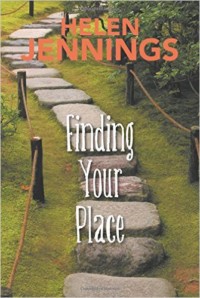Title: Finding Your Place
Author: Helen Jennings
Publisher: XlibrisUS
ISBN: 978-1-5245-5571-9
Pages: 104
Genre: Non-Fiction
Reviewed by: J.W. Bankston
Buy on AmazonPacific Book Review
The abiding and unique nature of God’s love is the overarching theme of Helen Jennings’s “Finding Your Place.” A blend of biography and spiritual guidance, it could incite some controversy with reading groups. Some may see “Finding Your Place” as fulfilling a need for uplifting catechism. Other readers may decide the relentless horrors endured by the book’s main character provide compelling arguments for aggressive family planning. Regardless, Jennings’s compassion and evident theological ability provide much of the book’s momentum.
“This is a true story about Meg’s life,” Jennings tells the reader, “and how she trusted God to see her through her struggles.” Meg is the 8th of 10 children, born to a very young and overburdened mother in the Caribbean. Late in Jennings’s work, she acknowledges the parents’ responsibility for their daughter’s bleak early years. She takes an unusual tact, however. Jennings believes the father was impatient. Instead of waiting he “made his own decision to choose a womb to be Meg’s mother.” Jennings believes the parents’ choices brought “complications and delays in Meg’s life.”
In the book’s initial chapters, these complications include being shuffled endlessly through the homes of disinterested relatives. As a toddler, Meg is essentially imprisoned in a room with most of her other siblings. Oldest sister Claire is stuck performing the motherly duties. She is often overwhelmed. So was I, at various points, as the author feels a need to provide extravagant details about the children’s bodily functions. Still, Jennings adeptly creates a sense of feeling uncared for and unable to escape. As Meg approaches school age, she does all she can to be in a classroom. Her hunger for knowledge is only matched by her need to belong. Her relatives are inconsistent and frequently neglectful but Meg finds an ad hoc family in church. As she is baptized and learns about Heaven and Hell, Jennings veers into homilies. She encourages readers to “not give up but persevere” and reminds them that “God will be God at all times.”
By midpoint, the book’s structure grows challenging. In its initial chapters, the connection between Meg’s story and the accompanying Biblical lessons is fairly seamless. In later chapters, the subject all but disappears as the writer fills page after page with lessons we can learn from Meg’s life. To some extent, this could be left for the reader to discover. I was similarly stymied by Meg’s identity. In her author’s testimonial, Jennings says, “After missing out on numerous childhood dreams, I was motivated to write my story, “Finding Your Place,” in the hope of encouraging others not to give up.” Yet Jennings’s decision to employ third-person narration does more than distance the author from her own memoir. It makes her seem like an unbiased observer when nothing could be further from the truth.
Readers who look for spiritual guidance will be well served by “Finding Your Place.” So will those looking for compelling arguments in favor of having few (if any) offspring. Most people wouldn’t trust Meg’s parents to watch a Beta fish over a holiday, let alone having enough kids to field an entire baseball team. Jennings has performed a service by writing this book. An inspirational read which I recommend to all those of the Christian faith, as well as other religions.


